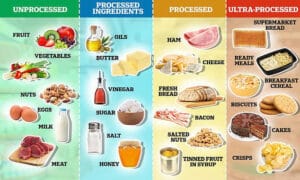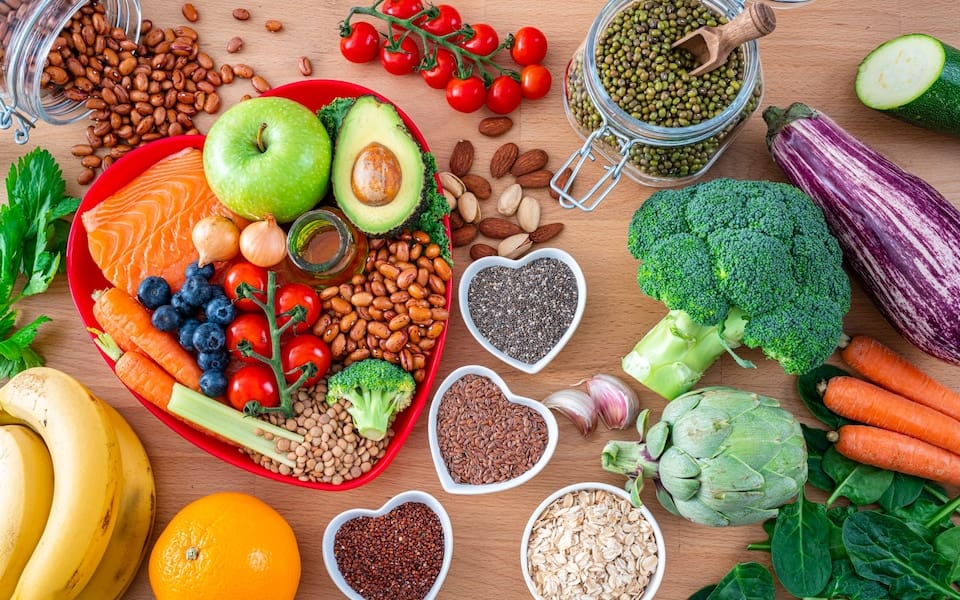Ultraprocessed Plant Based Foods
Eating a plant-based diet has gained popularity for its health benefits and positive impact on the environment. However, not all plant-based foods are created equal. A recent study sheds light on the risks associated with ultraprocessed plant-based options, revealing their potential impact on heart health and longevity.
The Risks of Ultraprocessed Plant Based Foods
While it’s tempting to indulge in convenient, ready-to-eat options like boxed macaroni and cheese or frozen veggie pizza, these ultraprocessed choices may not be as healthy as we assume. Even though they are meat-free, they come with risks. Here’s why:
- Bad Cholesterol and Hypertension: Ultraprocessed plant-based junk foods can significantly raise bad cholesterol levels and contribute to hypertension. These factors are linked to heart disease and early mortality.
- Level of Processing Matters: The study emphasizes that the impact of plant-based products depends on their level of processing. Not all plant-based foods are beneficial; some can pose health risks. Foods that undergo extensive industrial processes fall into the ultraprocessed category.
- What Makes Them Ultraprocessed? Ultraprocessed foods undergo multiple industrial treatments, including heating, nutrient extraction, molding, and chemical additives. They are designed to be hyper-palatable and require minimal preparation time.

Healthier Choices in My Plant Based Diet
Making healthier choices in a plant-based diet is essential for overall well-being. Here are some tips to help you on your journey:
- Prioritize Whole Foods:
- Choose whole, minimally processed foods whenever possible. These include fruits, vegetables, legumes (beans, lentils), whole grains (quinoa, brown rice), nuts, and seeds.
- Whole foods provide essential nutrients, fiber, and antioxidants that support your health.
- Diversify Your Plate:
- Aim for a variety of colors and types of plant-based foods. Each color represents different phytonutrients and health benefits.
- Include leafy greens, berries, citrus fruits, cruciferous vegetables (broccoli, cauliflower), and more.
- Watch Portion Sizes:
- Even healthy foods can contribute to excess calories if consumed in large portions. Be mindful of portion sizes.
- Use smaller plates to help control portions and prevent overeating.
- Limit Processed and Ultrarefined Foods:
- While some processed plant-based foods are convenient, limit their consumption. These include veggie burgers, vegan cheese, and packaged snacks.
- Opt for homemade versions or choose minimally processed alternatives.
- Read Labels:
- When buying packaged plant-based products, read labels carefully. Look for ingredients you recognize and understand.
- Avoid products with excessive added sugars, unhealthy fats, and artificial additives.
- Include Plant-Based Proteins:
- Incorporate protein-rich plant foods like tofu, tempeh, seitan, legumes, and quinoa.
- These provide essential amino acids and support muscle health.
- Healthy Fats Matter:
- Include sources of healthy fats, such as avocados, nuts, seeds, and olive oil.
- These fats are beneficial for heart health and overall well-being.
- Stay Hydrated:
- Water is essential for digestion, metabolism, and overall health. Drink plenty of water throughout the day.
- Herbal teas and infused water are great options too.
- Supplement Wisely:
- Some nutrients may be lacking in a plant-based diet. Consider supplements for vitamin B12, vitamin D, and omega-3 fatty acids.
- Consult a healthcare professional for personalized advice.
- Enjoy Treats Mindfully:
- It’s okay to indulge occasionally! Treat yourself to plant-based desserts or snacks, but do so mindfully.
- Balance treats with nutrient-dense meals.
Conclusion: When choosing plant-based options, prioritize minimally processed whole foods like fruits, vegetables, legumes, and whole grains. Avoid relying solely on ultraprocessed alternatives, even if they appear plant-based. Your heart health and overall well-being depend on making informed choices. A balanced plant-based diet includes a variety of foods to meet your nutritional needs. Listen to your body, stay informed, and enjoy the journey toward better health.

Read also:
Irvine Farmers Market 4us “Great Park Certified Farmers Market: Fresh Produce and Fun
Breast Cancer Surviving Ladies can have Child after ASCO treatment program,2024
Visit for more News: Click Here



